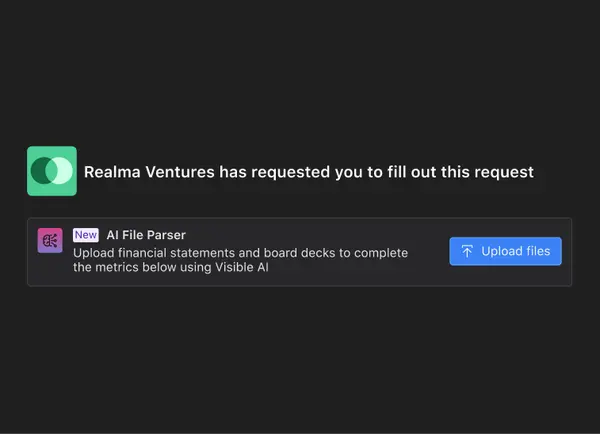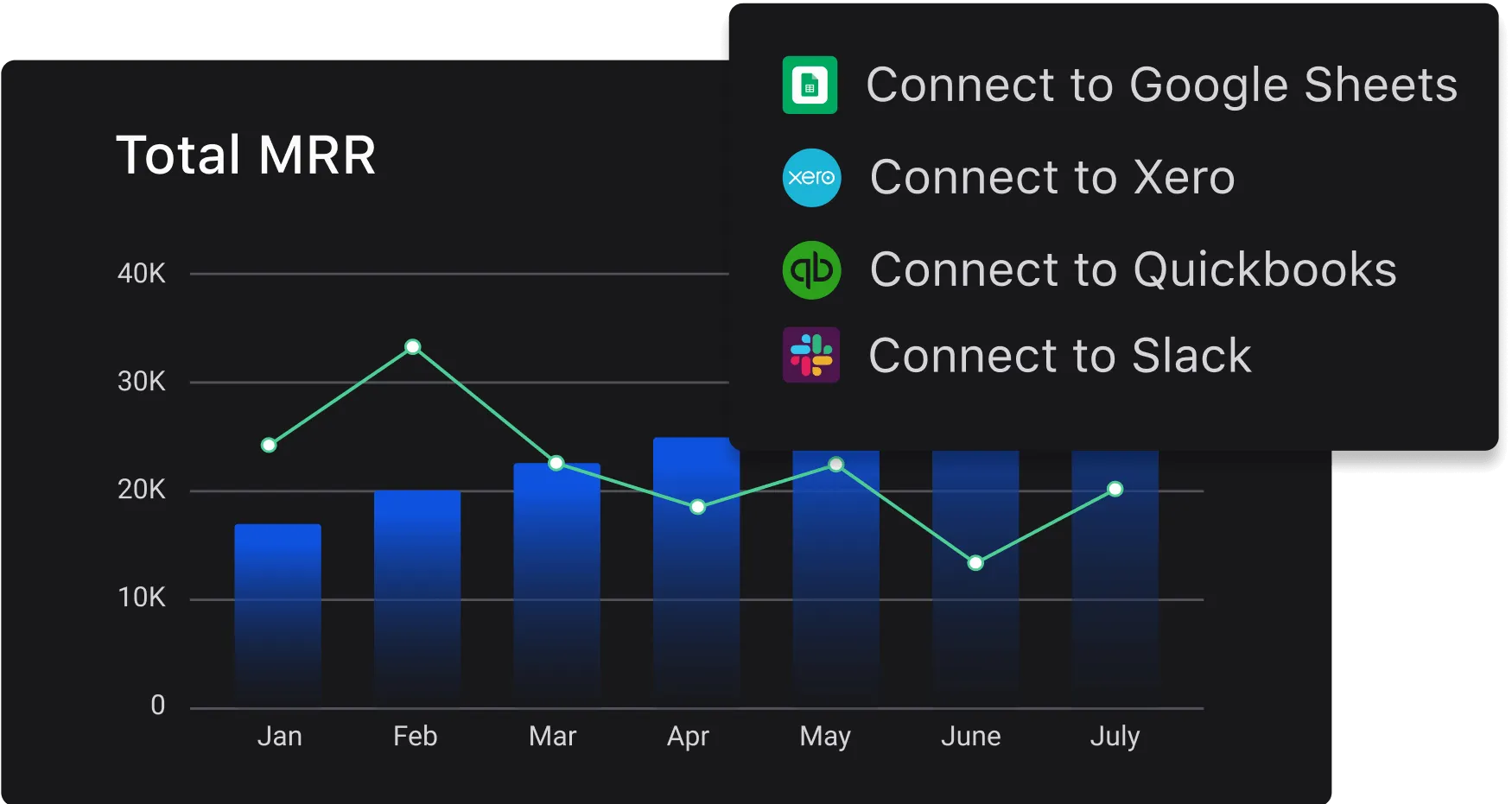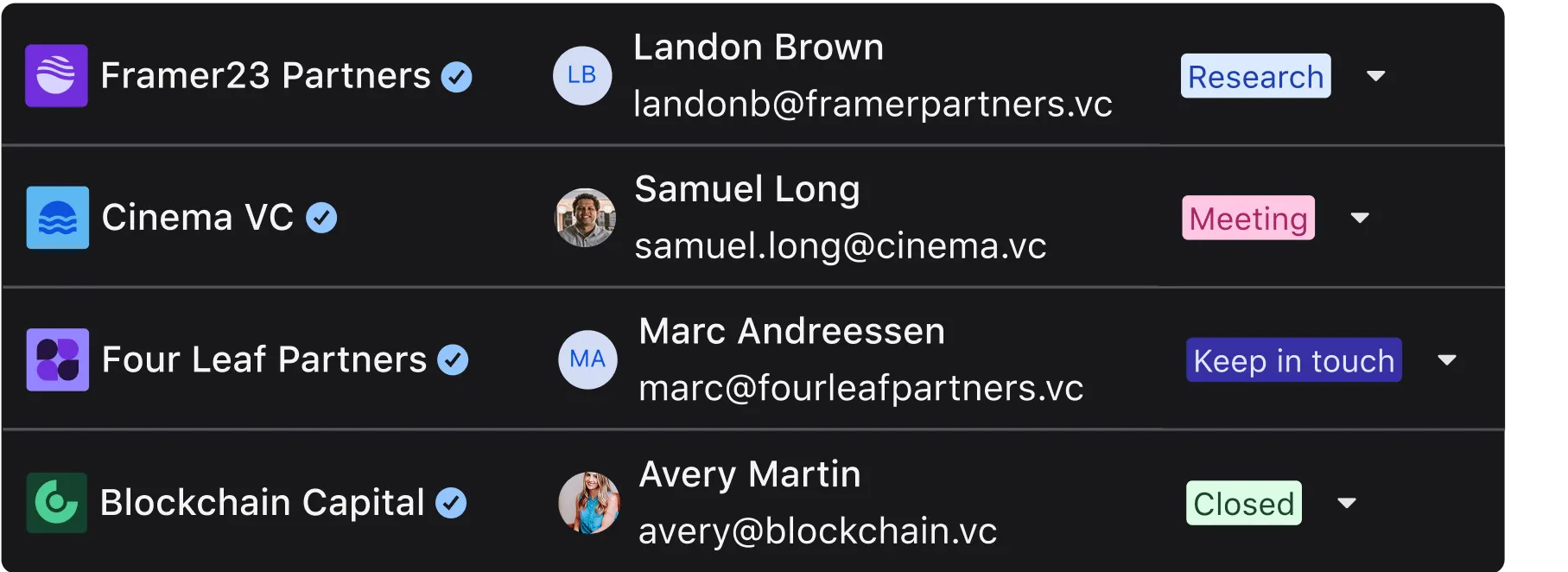Content Hub
Thrive Through Connection
Thrive Through Connection is your go-to resource for building relationships that drive your business forward—because fundraising isn’t just about capital, it’s about connection.
Latest Posts
See More See More23 Pitch Deck Examples
Fundraising
Investment Memos: Tips, Templates, and How to Write One (2026 Guide).
Fundraising
Fundraising in the US Midwest: Top VC Investors and Local Startup Resources
Fundraising
Categories
Discover all the categories and find the content you're looking for about Visible.
Blog Content
Insights and stories for founders and investors.
Podcast Episodes
Conversations that shape the founder-investor journey.
Fundraising Roadmap
An in-depth fundraising course to go from deck to check.
YouTube
Videos that bring founder and investors stories to life.
Thrive Through Connection
Get the fundraising answers you need from top investors and founders who’ve been there.
Topics
- Finding the Right Investors about Finding the Right Investors
- Investor Outreach about Investor Outreach
- Pitching VCs about Pitching VCs
- Fundraising Pipeline Management about Fundraising Pipeline Management
- Negotiation Terms about Negotiation Terms
- Closing the Round about Closing the Round
- Now You Have Investors about Now You Have Investors
The Role of AI in Startups and Venture Capital + Top VCs Investing in AI
Fundraising
The 12 Best VC Funds You Should Know About
Fundraising
60+ Active Seed Stage SaaS Investors & Fundraising Tips
Fundraising
Top NYC Venture Capital Firms: The 2026 Founder's List
Fundraising
The Role of AI in Startups and Venture Capital + Top VCs Investing in AI
Fundraising
The 12 Best VC Funds You Should Know About
Fundraising
60+ Active Seed Stage SaaS Investors & Fundraising Tips
Fundraising
Top NYC Venture Capital Firms: The 2026 Founder's List
Fundraising
All Encompassing Startup Fundraising Guide
Fundraising
CRM For Fundraising
Fundraising
Investor Outreach Strategy: 9 Step Guide
Fundraising
How to Cold Email Investors in 2026 (Templates + Tips)
Fundraising
The Startup Metrics That VCs Want to See
Metrics and data
23 Pitch Deck Examples
Fundraising
Pitch Deck 101: How Many Slides Should My Pitch Deck Have?
Fundraising
Tips for Creating an Investor Pitch Deck
Fundraising
The Most Popular Data Room Folders
Fundraising
What to Include in a Data Room for Investors: Essential Guide for Startups
Fundraising
A Step-By-Step Guide for Building Your Investor Pipeline
Fundraising
How to Cold Email Investors in 2026 (Templates + Tips)
Fundraising
6 Components of a VC Startup Term Sheet (Template Included)
Fundraising
How to Get Your Startup Ready for Investors’ Operational Due Diligence
Operations
The Startup's Handbook to SAFE: Simplifying Future Equity Agreements
Operations
Navigating Your Series A Term Sheet
Fundraising
SAFE Fundraising: When to Consider & Benefits
Fundraising
How to Write a Cover Letter for Your Data Room
Fundraising
The Most Popular Data Room Folders
Fundraising
What to Include in a Data Room for Investors: Essential Guide for Startups
Fundraising
How to Create a Board Deck (with Template)
Reporting
Investor Reporting for Startups: A Practical Guide to Building Trust and Raising Capital
Reporting
The Most Common Update Content Blocks
Reporting
How To Write the Perfect Investor Update (Tips and Templates)
Reporting
























